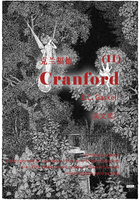The first notable improvement upon Bell's invention was the making of the transmitter, in 1877, by Emile Berliner. This, too, was a romance. Berliner, as a poor German youth of nineteen, had landed in Castle Garden in 1870to seek his fortune. He got a job as "a sort of bottle-washer at six dollars a week," he says, in a chemical shop in New York. At nights he studied science in the free classes of Cooper Union. Then a druggist named Engel gave him a copy of Muller's book on physics, which was precisely the stimulus needed by his creative brain. In 1876 he was fascinated by the telephone, and set out to construct one on a different plan. Several months later he had succeeded and was overjoyed to receive his first patent for a telephone transmitter. He had by this time climbed up from his bottle-washing to be a clerk in a drygoods store in Washington; but he was still poor and as unpractical as most in-ventors. Joseph Henry, the Sage of the American scientific world, was his friend, though too old to give him any help. Consequently, when Edison, two weeks later, also invented a transmitter, the prior claim of Berliner was for a time wholly ignored. Later the Bell Company bought Berliner's patent and took up his side of the case. There was a seemingly endless succession of delays--fourteen years of the most vexatious delays--until finally the Supreme Court of the United States ruled that Berliner, and not Edison, was the original inventor of the transmitter.
From first to last, the transmitter has been the product of several minds. Its basic idea is the varying of the electric current by varying the pressure between two points. Bell unquestionably suggested it in his famous patent, when he wrote of "increasing and diminishing the resistance."Berliner was the first actually to construct one. Edison greatly improved it by using soft carbon instead of a steel point. AKentucky professor, David E. Hughes, started a new line of development by adapting a Bell telephone into a "microphone," a fantastic little instrument that would detect the noise made by a fly in walking across a table. Francis Blake, of Boston, changed a microphone into a practical transmitter. The Rev. Henry Hunnings, an English clergyman, hit upon the happy idea of using carbon in the form of small granules.
And one of the Bell experts, named White, improved the Hunnings transmitter into its present shape. Both transmitter and receiver seem now to be as complete an artificial tongue and ear as human ingenuity can make them. They have persistently grown more elaborate, until today a telephone set, as it stands on a desk, contains as many as one hundred and thirty separate pieces, as well as a saltspoonful of glistening granules of carbon.
Next after the transmitter came the problem of the MYSTERIOUS NOISES. This was, perhaps, the most weird and mystifying of all the telephone problems. The fact was that the telephone had brought within hearing distance a new wonder-world of sound. All wires at that time were single, and ran into the earth at each end, making what was called a "grounded circuit." And this connection with the earth, which is really a big magnet, caused all manner of strange and uncouth noises on the telephone wires.
Noises! Such a jangle of meaningless noises had never been heard by human ears. There were spluttering and bubbling, jerking and rasping, whistling and screaming. There were the rustling of leaves, the croaking of frogs, the hissing of steam, and the flapping of birds' wings.
There were clicks from telegraph wires, scraps of talk from other telephones, and curious little squeals that were unlike any known sound. The lines running east and west were noisier than the lines running north and south. The night was noisier than the day, and at the ghostly hour of midnight, for what strange reason no one knows, the babel was at its height. Watson, who had a fanciful mind, suggested that perhaps these sounds were signals from the inhabitants of Mars or some other sociable planet. But the matter-of-fact young telephonists agreed to lay the blame on "induction"--a hazy word which usually meant the natural meddlesomeness of electricity.
Whatever else the mysterious noises were, they were a nuisance. The poor little telephone business was plagued almost out of its senses. It was like a dog with a tin can tied to its tail.
No matter where it went, it was pursued by this unearthly clatter. "We were ashamed to present our bills," said A. A. Adee, one of the first agents; "for no matter how plainly a man talked into his telephone, his language was apt to sound like Choctaw at the other end of the line."All manner of devices were solemnly tried to hush the wires, and each one usually proved to be as futile as an incantation. What was to be done? Step by step the telephone men were driven back. They were beaten. There was no way to silence these noises. Reluctantly, they agreed that the only way was to pull up the ends of each wire from the tainted earth, and join them by a second wire. This was the "metallic circuit" idea. It meant an appalling increase in the use of wire. It would compel the rebuild-ing of the switchboards and the invention of new signal systems. But it was inevitable; and in 1883, while the dispute about it was in full blast, one of the young men quietly slipped it into use on a new line between Boston and Providence.
The effect was magical. "At last," said the delighted manager, "we have a perfectly quiet line."This young man, a small, slim youth who was twenty-two years old and looked younger, was no other than J. J. Carty, now the first of telephone engineers and almost the creator of his profession. Three years earlier he had timidly asked for a job as operator in the Boston exchange, at five dollars a week, and had shown such an aptitude for the work that he was soon made one of the captains. At thirty years of age he became a central figure in the development of the art of telephony.















